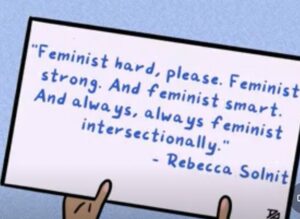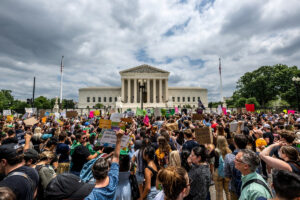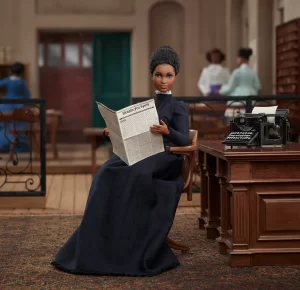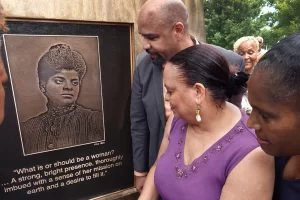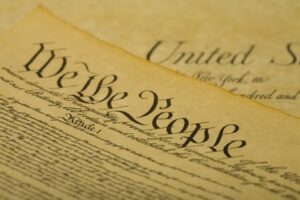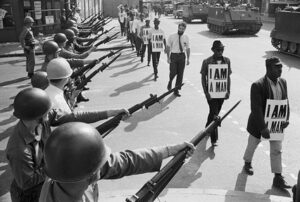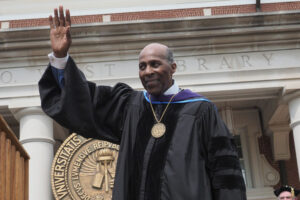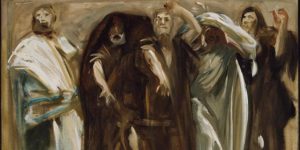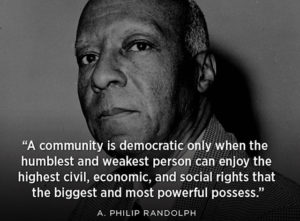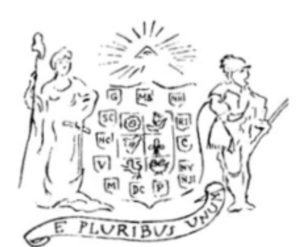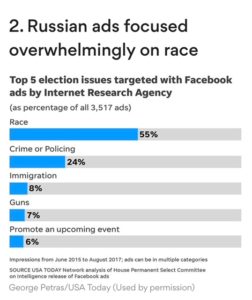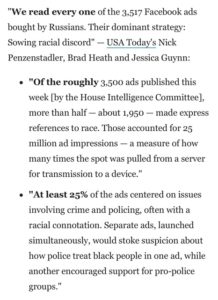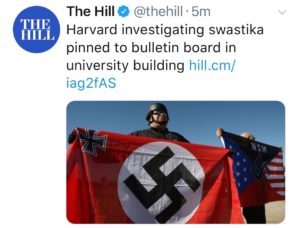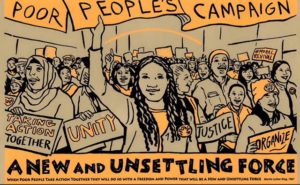Civil Rights
“Today’s Supreme Court decision is wrong.”
June 24, 2022“With sorrow — for this Court, but more, for the many millions of American women who have today lost a fundamental constitutional protection — we dissent.”
-Justices Breyer, Sotomayor, and Kagan
❧
Progress isn’t always a straight line.
Today’s Supreme Court decision is wrong
but Congress passing the Bipartisan Safer Communities Act is a modest but real step forward. And the fight will go on, thanks to the activists, survivors, and families who continue to demand action.
Today, the Supreme Court not only reversed nearly 50 years of precedent, it relegated the most intensely personal decision someone can make to the whims of politicians and ideologues—attacking the essential freedoms of millions of Americans.
-President Barack Obama
♡ ‘Culture of Care’ @AnaMariaforNY
Timeline: America’s Long Civil Rights March
By Nikole Hannah-Jones and Al Shaw, ProPublica
[2013]
Ever since the War of the States, Congress and the Supreme Court have clashed over the question of civil rights. When considering the recent rulings on affirmative action, the Voting Rights Act and the Defense of Marriage Act, it is useful to take the long view of the push and pull between Congress and the Supreme Court when it comes to civil rights. The long arc of history might bend toward justice, but there’s always been a lot of pendulum swinging along the way.
https://projects.propublica.org/graphics/vra
GALLUP
WASHINGTON, D.C. — With the U.S. Supreme Court expected to overturn the 1973 Roe v. Wade decision before the end of its 2021-2022 term, Americans’ confidence in the court has dropped sharply over the past year and reached a new low in Gallup’s nearly 50-year trend. Twenty-five percent of U.S. adults say they have “a great deal” or “quite a lot” of confidence in the U.S. Supreme Court, down from 36% a year ago and five percentage points lower than the previous low recorded in 2014.
Abortion is a fundamental right for all women. It must be protected. I wish to express my solidarity with the women whose liberties are being undermined by the Supreme Court of the United States.
-French President Emmanuel Macron
P
E
A
C
E
Non-violence.
K
I
N
D
The Kindness Bonus
Seth Godin
“Please be kind” sounds like a moral imperative. And in some ways, it is.
But behind the theory of the firm and a key building block of successful communities is the idea that kind interactions are significantly more productive.
When people feel seen and respected, they’re more likely to focus on what needs to be done, instead of taking umbrage or being defensive.
When we leave opportunities and pathways for others, they can move forward with less friction.
And when we’re enjoying our days, we’ve created a posture that spreads.
Hockey games aren’t supposed to be kind. But just about everything else works better when we don’t throw elbows.
“CARE is the antidote to violence.”
– Saidiya Hartman
From Jon Meacham’s podcast today, June 24th, 2022
On June 24th, 1990, The Catholic Church discusses excommunicating politicians who disagree with the church on abortion rights.
Important listen for history, and in this moment.
Reflections of History
From former Governor Mario Cuomo in 1984, at Notre Dame:
“I speak here as a politician and also as a Catholic, raised as a Catholic, pre-Vatican II church, educated in Catholic schools, attached to the church first by birth and then by choice, now by love. […] The Catholic church is my spiritual home. My heart is there. And my hope. The Catholic who holds political office in a pluralistic democracy, who was elected to serve Jews and Muslims, atheists, and protestants, as well as Catholics, bear special responsibility. He or she undertakes to help to create conditions under which all can live with a maximum of dignity and with a reasonable degree of freedom. Where everyone who chooses can hold beliefs different from specifically Catholic ones, sometimes contradictory to them, with laws that protect people’s rights to divorce, use birth control, and even to choose abortion. I protect my right to be a Catholic by preserving your right to believe as a Jew, a protestant, or non-believer, or anything else you choose. I accept the church’s teaching on abortion, must I insist you do, by law? By denying you Medicaid funding, by a Constitutional amendment? If so, which one? Would that be the best way to avoid abortions, or prevent them? […] We should understand whether abortion is outlawed or not, our work has barely begun. The work of creating a society where the right to life doesn’t end at the moment of birth. Where an infant isn’t helped into a world that doesn’t care if it’s fed properly, housed decently, educated adequately.”
“Search for the means of grace, and the hope of glory.” -Jon Meacham
S A N C T U A R Y
California Governor Gavin Newsom:
Abortion is legal in California.
It will remain that way.
I just signed a bill that makes our state a safe haven for women across the nation.
We will not cooperate with any states that attempt to prosecute women or doctors for receiving or providing reproductive care.
—
Canadian Prime Minister Justin Trudeau
The news coming out of the United States is horrific. My heart goes out to the millions of American women who are now set to lose their legal right to an abortion. I can’t imagine the fear and anger you are feeling right now.
—
Signal App post today on twitter:
@signalapp
Here is your friendly reminder that we built Signal for private, secure communication. It’s built so you can communicate individually and in groups, through text and calls, without fear of interference or data collection. Free to use and not for profit.
#protectwomen
Memphis Free Speech
January 11, 2022The new Barbie doll of journalist and activist Ida B. Wells.
Jason Tidwell/Mattel
I had a Skipper and a Scooter. I wish I could have had an Ida B. -dayle
Journalist Ida B. Wells is commemorated with a Barbie doll for fearless activism
NPR
by Elizabeth Blair
Educator, journalist, anti-lynching activist and NAACP co-founder Ida B. Wells joins the pantheon of distinguished women honored by Mattel with her own signature Barbie doll. Resplendent in a deep blue, floor-length dress with lace details, the new Ida B. Wells doll also comes with a historically significant accessory: a miniature replica of the Memphis Free Speech, the newspaper where Wells became editor and co-owner in 1889.
Mattel has created numerous Barbie dolls to honor both historic and contemporary heroines in the hopes of inspiring “generations of girls to dream bigger than ever before.” It’s Inspiring Women Series includes dolls dedicated to Maya Angelou, NASA mathematician Katherine Johnson and singer Ella Fitzgerald.
The oldest of eight children, Ida B. Wells was born into slavery in Holly Springs, Miss., in 1862. When she was 16, both of her parents and a younger brother died during the yellow fever epidemic. Wells raised her younger siblings and became a teacher to support her family.
Daniel and Michelle Duster attend the dedication of a monument to their great-grandmother, journalist, educator, and civil rights leader, Ida B. Wells in Chicago last year.
Scott Olson/Getty Images
“I am honored that Barbie has chosen to celebrate my great-grandmother, Ida B. Wells, as part of its Inspiring Women Series,” says Michelle Duster, author, public historian, and great-granddaughter of Ida B. Wells in a statement. “My great-grandmother was a trailblazer, who courageously followed her convictions and challenged the status quo by fighting for civil rights and women’s suffrage. This is an incredible opportunity to shine a light on her truth and enduring legacy to empower a new generation to speak up for what they believe in.”
A pivotal moment in Wells’ life came in 1883 when she was traveling by train from Memphis to Woodstock, Tenn., where she was a teacher. When she refused to give up her seat and ride in a segregated car, she was forcibly removed. Wells later sued the Chesapeake, Ohio and Southwest Railroad Co. A local court ruled in her favor but the decision was eventually overturned in federal court.
Wells became a fierce anti-lynching activist. She investigated white mob violence and wrote scathing indictments of the lynchings of Black men. Her articles so angered locals, the offices of the Memphis Free Speech were destroyed.
In the preface to her 1892 pamphlet Southern Horrors: Lynch Laws In All Its Phases, Wells wrote, “It is with no pleasure I have dipped my hands in the corruption here exposed. Somebody must show that the Afro-American race is more sinned against than sinning, and it seems to have fallen on me to do so.”
Marianne. 
October 6, 2021
Bringing to Consciousness America’s Unconscious Shadows
- Abolitionists
- Suffragettes
- Civil Rights
America is like an alcoholic home, in which no one is really saying what’s going on, the children are registering all the unprocessed realities but don’t know what to do with them, and anyone who speaks up and tells the truth is likely to be severely punished.
We can’t send the country to rehab, but we can at least try to be honest with ourselves about what’s happening. And that is no small deal. As more and more Americans bring to consciousness the unconscious shadows of our national identity, the country will begin to heal.
A lot of it is stuff we’ve all heard, but still it’s worth going over to make sure our thinking is aligned with what’s true.
In 1776, 56 men signed the Declaration of Independence, and the document was an extraordinary statement of human possibility. It was a gigantic step forward for the human race not only politically but also spiritually. For it posited the notion – what would have been considered until then a preposterous perspective – that God created all men equal.
It went on to say not only that God created all men equal, but that He had endowed all men with the “unalienable rights to life, liberty and the pursuit of happiness.” The very idea of human equality had never before been codified in the founding documents of any nation on earth.
Centuries of nations ruled by the notion of the “divine right of Kings” was overthrown by a bunch of young radicals in the American colonies. All the men who signed the document were risking their lives by doing so, for if the British won the war then they would be hanged as traitors against the King of England.
That was the beginning … and yet there was a glitch. A quite terrible glitch. For of the 56 signers of the Declaration of Independence, 41 of them were slaveowners. Slaves had first been brought to the American colonies in 1619, and slavery would not be abolished as in institution until 1865. Even then, it was still legally allowed within a prison system that took full advantage of the loophole to enslave African American men. And the 13th Amendment, passed in 1865, was followed by another hundred years of institutionalized slavery against Blacks in America.
What all of that means then, is that from the very beginning of our country we have embodied a terrible split between the highest aspirations of humanity on one hand, and our lowest, meanest impulses on the other. Our national ideals are highly enlightened, whereas in every generation since the days of our founding we have lived out an often violent struggle between those who would stand, sacrifice and even die for those ideals, and those who would transgress against them.
Would our commitment to equality mean only white people, by not Black? Only Caucasians, but not Native Americans? Only men, but not women? Only Christians, but not Jews, Hindus, Muslims and others? Only straight and cisgender people, but not LGBTG? And the list goes on. Today, it also means – as much as it has at any time in our history – only the rich, but not the poor?
While the struggle has been embodied by every generation, over time we have tended to self-correct. Slavery was met by Abolition, institutionalized oppression of women was met by the Women’s Suffragette Movement, and segregation in the American South was met by the civil rights movement. Our legacy as Americans includes some terrible forms of oppression – from slavery to the genocide of Native Americans – but it also includes tremendous movements to push back and to ultimately defeat even the worst forms of tyranny. We have as much to be proud of in our past, as to be ashamed of.
But the most important thing, is that it’s our turn now. Today’s oppression is not encapsulated in specific institutionalized identities such as slavery or segregation or the lack of women’s suffrage. Those could be compared to operable tumors that could be surgically removed. Rather, it is more like a cancer that has metastasized and is wrapped around healthy organs, sucking from them their very life force. The new American aristocracy is the same in principle as it has always been – in the words of Thomas Jefferson, “It is the general tendency of the rich to prey upon the poor” – yet it has morphed into something new: the economic tyranny of a shadowy, predatory form of capitalism that has injected itself into every fiber of American life. Worst of all – with the obscene and unlimited flow of dark money in our politics – it now holds our government hostage, turning all three branches of government from our last defense against capitalist overreach into the very handmaiden of our corporate overlords.
American capitalism has gone off the rails, its most predatory form like a soulless force now lording over us. Our food, water and air are filled with toxins …so that stockholders can get rich. Our planet is being destroyed … so that stockholders can get rich. Millions lack health care… so that stockholders can get rich. We fight wars around the world… so that stockholders can get rich. Millions work for starvation wages and unions are busted … so that stockholders can rich. And the list goes on. There seems to be no end in sight to the corporate tyranny that now plagues us.
Will we be the first generation to wimp out on pushing back the forces that would damage our lives and limit our future? I believe not. I know how bad things look right now, but hope is a moral imperative and cynicism is just an excuse for not helping. Having run for office myself, I’ve seen up close the goodness and intelligence of the American people. The more we understand, and the more we’re willing to stand on what we know, the more power we will have to overcome.
Abolition emerged from the early Evangelicals in New Hampshire. Many of the leaders of the Women Suffragette movement were Quakers. And Dr. King was a Baptist preacher.
Throughout our history, we have found the power to override even the most oppressive forces through political activism that was fueled by spiritual fortitude. The marriage of the two is emerging once again. I can feel it in my bones.
Vernon E. Jordan ’57
March 2, 2021DePauw mourns the death of civil rights leader Vernon Jordan ’57
Vernon E. Jordan ’57, a tenacious civil rights leader and a trusted adviser to American presidents, died last night. He was 85.
Jordan grew up in Atlanta but chose to come north to attend DePauw University for his higher education. He knew he would stand out as an African-American matriculant from the segregated South, and he was the only Black student in the Class of 1957 and one of only five African Americans in the student body when he first stepped onto campus.
While at DePauw, Jordan immersed himself in the student senate, excelled in oratorical contests and, by his own reckoning, was something of a big man on campus.
He later said of DePauw: “I love this place – DePauw – because it prepared me to lead the life I have been blessed to live. If I were to enumerate all the great gifts this university gave me, everything I learned, or all that my education made possible, I would need at least another four years.
“But, in the interest of time – and the desire to avoid additional tuition payments – I’ll say this: DePauw University nurtured my growth and maturity. I made lasting friendships here. And if I had my life to live over again, I would return to this place.”
Said DePauw President Lori S. White: “Our community mourns the passing of Vernon Jordan, a member of the Class of 1957. DePauw University has lost a dear friend and the world has lost a determined leader. He spoke loudly – through words and deeds – as a civil rights activist and quietly as a trusted counsel to presidents. DePauw is better for having had him as a beloved alumnus, and the country and the world are better for having him as a leader.”
After DePauw, Jordan graduated from the Howard University School of Law and quickly established himself as a leader. He became a close adviser to President Bill Clinton and one of the most powerful Black executives in America, known as “the Rosa Parks of Wall Street.”
He was first in the public eye soon after graduating law school, when his law firm won a lawsuit on behalf of two Black students – including Charlayne Hunter, who would add “-Gault” to her last name and go on to be a renowned journalist – to be admitted to the University of Georgia. A year later, he became Georgia field director for the NAACP, organizing voter-registration drives and boycotts of businesses that refused to hire African Americans. In 1964, he became director of the Voter Education Project of the Southern Regional Council. He became executive director of the United Negro College Fund in 1970, followed by nine years as president and chief executive officer of the National Urban League. He joined Akin Gump Strauss Hauer & Feld LLP in Washington D.C. in 1982, where he most recently was senior counsel; he also worked as senior managing partner at Lazard Frères & Co. LLC in New York since 2000.
In political circles, Jordan was best known as a close friend and adviser to President Clinton, for whom he ran the transition process in 1992. He had relationships with other presidents for virtually his entire professional life: President Johnson tapped him in 1966 to participate in the White House Conference on Civil Rights. President Nixon invited him to the White House in 1971, when Jordan informed the president he intended to be as candid as his Urban League predecessor had been. President Carter offered him two cabinet positions – both of which Jordan declined – and visited Jordan in the hospital in 1980 after the civil rights activist was shot by an avowed racist in Fort Wayne, Indiana. Jordan met regularly with President George H.W. Bush during negotiations over the Civil Rights Act of 1990. President George W. Bush took friendly jabs at Jordan when speaking to the Economic Club of Washington, of which Jordan was president. And President Obama, a long-time friend, celebrated Jordan’s 80th birthday in 2015.
Jordan wrote an autobiography, “Vernon Can Read: A Memoir,” and a compendium of his speeches, “Make It Plain: Standing Up and Speaking Out.” He was among the civil rights leaders interviewed at length and featured in Robert Penn Warren’s 1965 book “Who Speaks for the Negro?” He recently was the subject of a documentary, “Vernon Jordan: Make It Plain,” a chronological retelling of his life.
Jordan returned to the DePauw campus often and was the commencement speaker in 1973, 1993 and 2018. He received numerous awards: in 2018, the Anti-Defamation League’s Lifetime Achievement Award; in 2017, Harvard Law School Center on the Legal Profession’s Award for Global Leadership; in 2014, The American Lawyer magazine’s Lifetime Achievement Award and the Hubert H. Humphrey Public Leadership Award from the University of Minnesota’s Humphrey School of Public Affairs; in 2009, the W.E.B. DuBois Medal from Harvard University; in 2003, the Trumpet Award; in 2001, the Joel E. Spingarn Medal from the NAACP; in 1993, the McNaughton Medal for Public Service from DePauw University; and, in 1969, the Old Gold Goblet from DePauw. He has received honorary degrees from more than 70 colleges and universities, including DePauw.
Jordan sat on a number of boards of corporations and organizations and was an advisory member of the DePauw Board of Trustees.
www.depauw.edu/stories/details/depauw-mourns-the-death-of-civil-rights-leader-vernon-jordan-57/
|
Dear DePauw Alumni, It is with a heavy heart that I share the news that Vernon Jordan, a proud DePauw graduate and globally renowned civil rights leader, has passed away. He was beloved by not only the DePauw family, but by countless people the world over whose lives he profoundly changed or influenced. We are blessed to have called him one of our own. Below is a link to our news announcement. Sincerely, |
|
|
|
Lori S. White, Ph.D. President |
When Jordan attended DePauw, due to segregation and racism, Jordan could not go into the local bar in Greencastle, Indiana for a beer, or join a fraternity.
Yet, Jordan wrote in his memoir:
“I was the only Black participant and was not at all uncomfortable. This as the way it was going to be. I had chosen this path.
“One of the good things about going to a school in a small town is that everything that happens there commands great attention. There’s no competing entertainment. When the four of us gathered to give our speeches in East College, we were before a capacity crowed. My topic was “The Negro in America,” a subject I’d been talking about since I was fifteen years old. I feel comfortable with that. I did my best, and I won.”
“Although Indiana is above the Mason-Dixon line, it has a tough history regarding race. For a time, it had the largest and most active chapters of the Ku Klux Klan in the country. It was a mess in the 1920’s and 1930’s. When I was there in the 1950’s, it wasn’t exactly a racial utopia.”
“There was, of course, the U.S. Supreme Court’s 1954 ruling in Brown v. Board of Education, and a year later, in December of my junior year, word came from Montgomery, Alabama, of the boycott of city buses in response to Rosa Park’s refusal to move to the back of the bus. Leading the boycott was the Reverend Martin Luther King, Jr., the young preacher from Atlanta. King’s reputation had grown considerably since the day he had officiated at my brother Warren’s weeding. With Montgomery, he became a figure of world-wide renown.”
Later, Jordan would say of DePauw:
“I love this place – DePauw – because it prepared me to lead the life I have been blessed to live. If I were to enumerate all the great gifts this university gave me, everything I learned, or all that my education made possible, I would need at least another four years.”
#CivilObligation
July 4, 2019
Thursday, July 4, 2019
Sister Simone Campbell, SSS—known as “the nun on the bus”—is someone I consider a modern prophet. She is the Executive Director of NETWORK, an organization that lobbies for socially just federal policies. On this “Independence Day” (in the United States), reflect on Sr. Simone’s invitation to co-create our collective freedom.
In the last half of the twentieth century, thankfully, our society began to engage in a serious process of trying to atone for the sin of slavery, and in doing so much emphasis was placed on promoting civil rights. An unintended consequence of this important movement was a heightened focus on individuals and individual exercise of the freedoms guaranteed in the Constitution. The civil rights movement came out of community, but the legal expression focused on individuals’ capacity to exercise their freedoms. Some fearful Americans—largely white men who professed a conservative version of Christianity—felt threatened, as if there were not enough rights to go around. They sought to create their own “movement.” This reaction in part fueled the rise of the tea party movement. . . .
But a democracy cannot survive if various groups and individuals only pull away in different directions. Such separation will not guarantee that all are allowed the opportunity for “life, liberty, and the pursuit of happiness.” All people must be recognized for their inherent dignity and gifts regardless of the color of their skin, their religious beliefs, or their place of origin. And all these gifts need to be shared in order to build up the whole.
So I have begun to wonder if the new task of the first half of the twenty-first century should be a commitment to civil obligations as a balance to the focus on civil rights.
Civil obligations call each of us to participate out of a concern and commitment for the whole. Civil obligations call us to vote, to inform ourselves about the issues of the day, to engage in serious conversation about our nation’s future and learn to listen to various perspectives. To live our civil obligations means that everyone needs to be involved and that there needs to be room for everyone to exercise this involvement. This is the other side of civil rights. We all need our civil rights so that we can all exercise our civil obligations.
The mandate to exercise our civil obligations means that we can’t be bystanders who scoff at the process of politics while taking no responsibility. We all need to be involved. Civil obligations mean that we must hold our elected officials accountable for their actions, and we must advocate for those who are struggling to exercise their obligations. The 100 percent needs the efforts of all of us to create a true community.
It is an unpatriotic lie that we as a nation are based in individualism. The Constitution underscores the fact that we are rooted and raised in a communal society and that we each have a responsibility to build up the whole. The Preamble to the Constitution could not be any clearer: “We the People” are called to “form a more perfect Union.”
-Richard Rohr, Center for Action & Contemplation
Simone Campbell with David Gibson, A Nun on the Bus: How All of Us Can Create Hope, Change, and Community (HarperOne: 2014), 180-182.
Image credit: Frieze of the Prophets (detail), John Singer Sargent, circa 1892, Museum of Fine Arts, Boston, Massachusetts.
democratic (small d) communities
May 20, 2019A. Philip Randolph organized the March on Washington where Dr. King gave his famous “I Have a Dream” speech. He was a civil rights activist, a labor organizer, and instrumental to desegregating the military.
Vernon Jordan
June 8, 2018“In so many ways, our challenge in our national life is to not let the exceptions become the rule,” Jordan told the crowd gathered in the Holton Memorial Quadrangle at DePauw University’s 179th commencement. “To not let fear and hatred become the rule. To not let a society that gets more divided become the rule. To not let falsehoods become the rule. To not let a lack of leadership, a lack of integrity, a lack of respect for others, become the rule.”
Vernon Jordan
DePauw University Commencement Speech
May 20, 2018
[Jordan is a 1957 graduate of DePauw University, civil rights legend, attorney and presidential adviser.]
Who among the guards?
May 12, 2018‘Out of Many One’
E Pluribus Unum
13 letters-13 colonies.
This was considered the U.S. motto until the mid ‘1950’s when this nation adopted ‘In God We Trust’, right around the same time the government added, ‘One nation under God’ to the pledge of allegiance.
With the unity of the 13 colonies the country was ideally formed out of many to become one nation.
‘The philosophy of the Declaration, that government is set up by the people to secure their life, liberty, and happiness, and is to be overthrown when it no longer does that, is often traced tot he ideas of John Locke, in his [1689] Second Treatise on Government.
It talked about government and political rights, but ignored the existing inequalities in property. And How cold people truly have equal rights, with start differences in wealth?’ (A People’s History of the United States, Howard Zinn, p. 73)
The preacher Theodore Parker told his congregation ‘money is this day the strongest power of the nation’ (p. 221).
‘The memory of the oppressed people cannot be taken away’ (p. 443).
Langston Hughes wrote in a 1930’s poem, ‘Lenox Avenue Mural’:
What happens to a dream deferred?
Does it dry up
like a raisin in the sun?
Or fester like a sore—
and then run?
Does it stink like rotten meat?
Or crust and sugar over—
like a syrupy sweet?
Maybe it just sags like a heavy load.
Or does it explode?
Yes, Russia interfered with the 2016 presidential election, at the very least, with disinformation on the Internet—interjecting false ads, the majority of which did not necessary align with a particular candidate, but were motivated by social distruption: race.
AXIOS
Additionally, “900 [race-related spots] were posted after the November election through May 2017”.
CNN:
In the days after the November 2016 election, an increase in racist slogans and hateful messages was reported, especially in schools. The Southern Poverty Law Center found 867 cases of hateful harassment or intimidation in the 10 days after the Nov. 8 election.
Two recent examples, May 2018:
https://mobile.twitter.com/shaunking/status/994594065919324160
Shaun King on Twitter: “That is Anthony Wall, in prom clothes, being lifted off the ground and choked by a Warsaw County police officer @WaffleHouse. He had just taken his little sister to prom. And yet again @WaffleHouse called the cops. Anthony, of course was unarmed & non-violent.
Perhaps a more direct caption: #Lynching2018
’People in time, in friendly communities might create a new, diversified, nonviolent culture, in which all forms of personal and group expression would be possible. Men and women, black and white, old and young, could then cherish their differences as positive attributes, not as reasons for domination. New values of cooperation and freedom might then show up in the relations of people, the upbringing of children.
To do all that, in the complex conditions of control in the United States, would require combining the energy of all previous movements in American history—of labor insurgents, black rebels, Native Americans, women, young people—along with the new energy of an angry middle class. People would need to begin to transform their immediate environments—the workplace, the family, the school, the community—by a series of struggles against absentee authority, to give control of these places to the people who live and work there’ (Zinn, p. 639).
Rise like lions after slumber
In unvanquishable number!
Shake your chains to earth, like dew
Which in sleep had fallen on you—
Ye are many; they are few!
Shelley
Blackbird.
August 2, 2016‘Blackbird singing in the dead of night,
Take these sunken eyes and learn to see
All your life, you were only waiting
for this moment to be free.’
-Paul McCartney, ‘Blackbird’
“I read that McCartney wrote this song about the civil rights struggle after reading about American race riots. He said he got ‘The idea of using a blackbird as a symbol for a black person. It wasn’t necessarily a black bird, but it works that way…Take these broken wings was very much in my mind…it was purposely symbolic.’
McCartney said he penned it in his kitchen in Scotland not long after an incident when the US federal courts forced the racial desegregation of the Little Rock Arkansas, school system.
It is said that freedom begins in the heart.
Many of us are still waiting to be free – – liberated from ourselves – – from our perceived limitations. We yearn for freedom from our patterns of holding ourselves captive and remaining bound to our likes and dislikes, locked in an unwillingness to expand beyond our fears and the past. Freedom from a limiting self-identity is spiritual freedom. Regardless of circumstances, we are called to freedom – – to live from the heart – – in more love, less fear.”
-Rev. Andriette Earl, Heart and Soul Center of Light in Oakland, California
